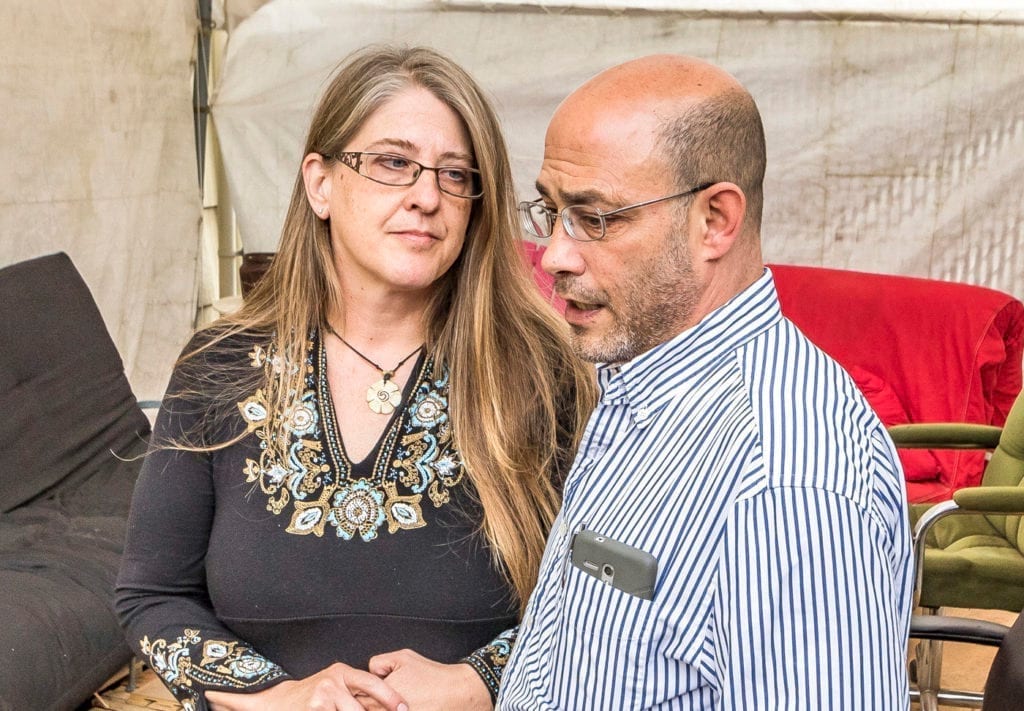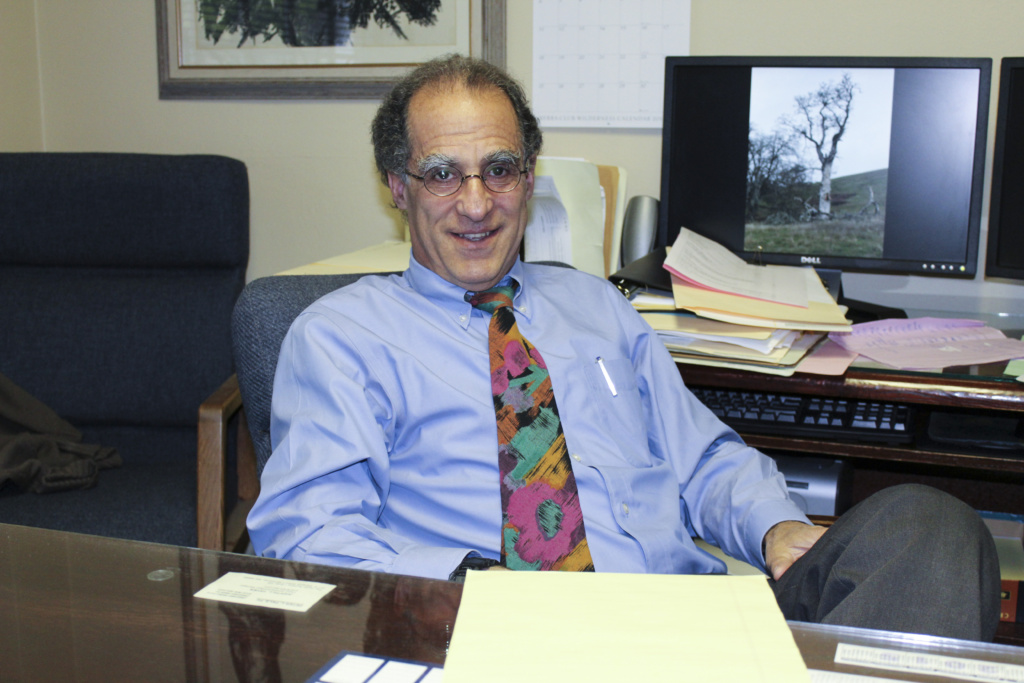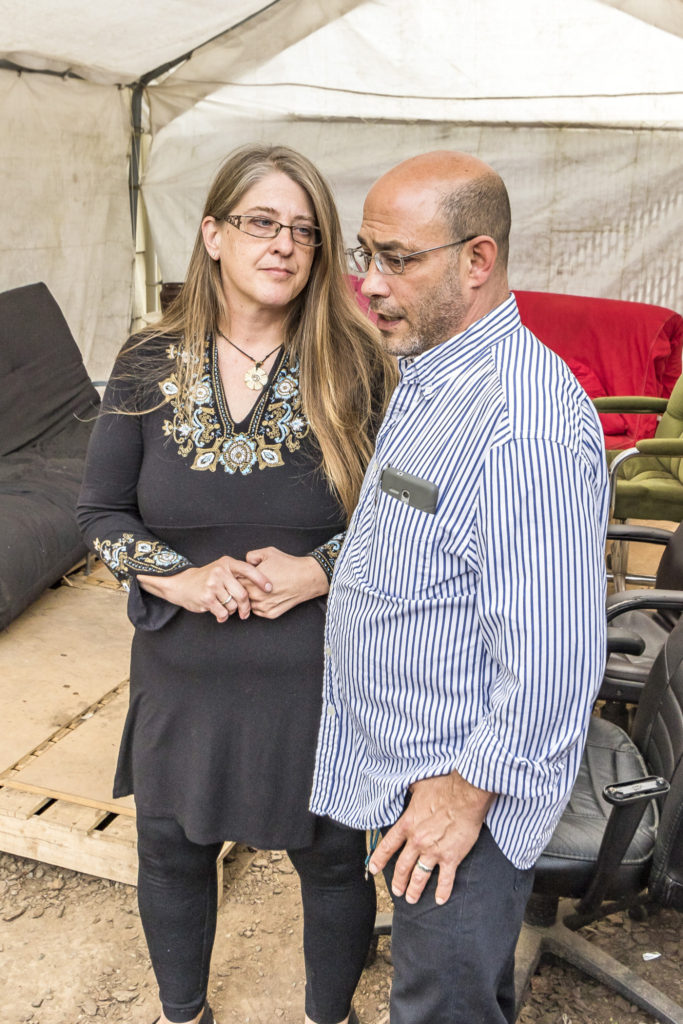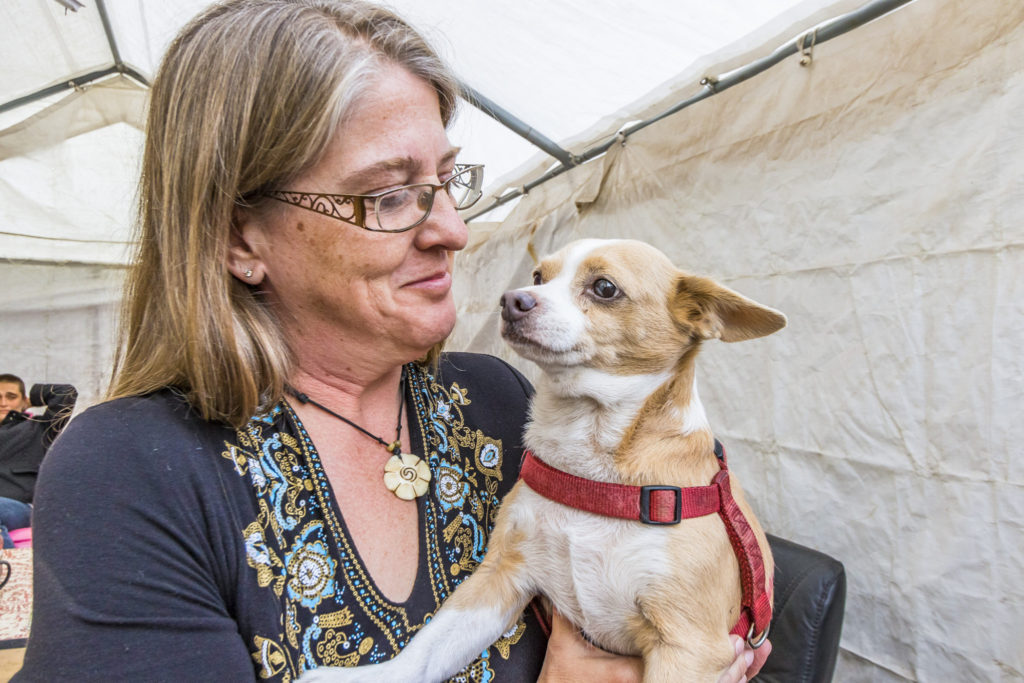
CLARK COUNTY — Clark County leaders are expected to approve a $250,000 settlement agreement this week as restitution for violating homeless campers’ civil rights.
Earlier this month, a federal judge in Tacoma found Clark County liable for violating the constitutional rights of unhoused citizens when county work crews cleared homeless camps, seizing and disposing of the homeless campers’ personal property.
According to the suit, brought on behalf of eight different homeless plaintiffs, county work crews often seized personal belongings — including clothing, tents, sleeping bags, photographs, driver’s licenses, shoes, computers, food, medication, prescription glasses and toiletries — with little to no notice, and then disposed of the items immediately, giving homeless campers no chance to retrieve their belongings.
“It was a clear violation of the law,” says Vancouver attorney Peter Fels of the county’s seizure practices. Fels, along with his co-counsel, Moloy Good, a member of the Portland Human Rights Commission, represented the eight plaintiffs in their case against the county.
On Sept. 16, U.S. District Court Judge Robert Bryan agreed that the county had violated the plaintiffs’ constitutional rights, ruling that the county’s “immediate destruction of the property (rather than holding it for possible return) made the seizure unreasonable under the Fourth Amendment.” Bryan also dismissed the county’s assertion that the work crews were justified in removing and destroying the personal property because campers had violated the county’s illegal camping ordinances.

Quoting a similar case out of Los Angeles that went to the Ninth Circuit Court of Appeals, the highest court in the nation before the U.S. Supreme Court, Judge Bryan ruled that that violation of an ordinance (in this case the illegal camping ordinance) does not nullify a person’s Fourth Amendment rights, which protect citizens from illegal search and seizures of private property.
Although a trial date to determine the county’s restitution had been slated for Oct. 3, Fels said the plaintiffs and the county reached a settlement agreement late last week. If approved as is, the county will pay $85,000 to the plaintiffs, with a portion of that money set aside to help improve life for the area’s homeless population — possibly by constructing large lockers where homeless people could safely store possessions like camping gear and bicycles.
Another part of the settlement agreement speaks to the county’s policies on seizing property. Under the settlement’s terms, in the future, county work crews will tag property found on the ground and give 48-hour notice that the property is slated for removal.
Fels said the plaintiffs wanted the county to hold property that cannot be retrieved within 48 hours for an additional 60 days before disposing of the items. Under the terms of the proposed settlement agreement, the Clark County District Court policy on removing personal property from public lands would treat property left for 48 hours after notification as “abandoned.” The agreement states that “if there is a box, bag, bin or other similar container with identification markings or a wallet, purse of personal electronic devices, the work crews will transport those items to Friends of the Carpenter for possible subsequent recapture by the owner. Items transported to Friends of the Carpenter will be marked for the time, date and location of removal.”
Chris Horne, the county’s attorney, said he could not comment on the matter until after county councilors had approved the agreement, but said he expects councilors to consider the settlement agreement by the end of this week.
Under the terms of the proposed agreement, the county would pay $250,000 to the plaintiffs, including $165,000 to pay attorney fees and costs and $85,000 in “otherwise alleged damages.” In return, according to the proposed settlement agreement, the plaintiffs would agree to “file a dismissal and prejudice of all claims alleged in the [original complaint] to include attorney fees and costs” and to release claims or other demands “that may have or could have arisen out of the alleged facts” of the original complaint against the county.
“They didn’t really understand what the problem was”
Fels, a Vancouver attorney who serves on the board of directors for Share, a Clark County nonprofit organization that serves the area’s homeless and low-income residents, says he first heard about the county’s illegal homeless camp seizures while working at one of Share’s shelter locations in 2012.
That’s when Terry Ellis, one of the eight plaintiffs named in the case against the county, approached Fels with questions about filing a complaint against the county work crews for taking his personal belongings during a homeless camp sweep.
“Terry said, ‘This has happened to me and it’s happened to a lot of other people,’” Fels recalls. “So I explained the complaint form to him and then I followed up with the county.”
Fels said he went back and forth with county administrators about why they couldn’t simply take and destroy people’s personal belongings, but that he got nowhere with the county.
“They didn’t really understand what the problem was,” Fels says. “They were basically saying, ‘I dare you to find other people that this has happened to’ … so I did.”
Fels, along with his staffers, went to meal times at area shelters and talked to dozens of homeless people. When he asked if anyone had lost property to county work crews, people lined up to tell their stories.
“There were so many coming up to me, I couldn’t talk to them all,” Fels says. “Only one guy had had any notice — 10 minutes’ notice — that they were going to take his things. He’d been watching a friend’s (camp) too, so he gathered his friend’s things and moved them. When he got back, his stuff was gone.”
In the end, after hearing hundreds of stories about illegal property seizures, Fels said he had more than enough to bring suit against the county. The problem was proving that the county had taken his plaintiffs’ property, since many of the stories went something like this: A homeless camper leaves his or her things behind a large bush or under a tree, goes off for the day to find food and money and resources, and when they return to their camp site, their tent and all of their personal belongings are gone.
In some cases, homeless campers caught up with county work crews and pleaded to have their things returned. One man told Fels that he could see his property on the work crew’s trailer, just sitting right there in front of him, but that, when he asked to have it back, the crew members said no.
In the suit brought against the county, a man named Joe Hillstead testified that in June of 2014 he served on a Clark County Corrections work crew under a supervisor named Jeff: “According to (Hillstead), the crew would drive around Vancouver, to see if there was trash to pick up … Jeff would take them to sites where he knew homeless people regularly camped. If they saw camping gear at these sites, they would stop and Jeff would instruct the crew to pick up everything and place it in the trailer.”
Hillstead told the court that he worked with this supervisor for three days and helped clear at least five homeless camps and that the campers’ property did not appear to be abandoned. He said his supervisor seemed to have “a particular interest in finding property that belonged to homeless people in order to have the crew pick it up and remove it.”
A devastating loss
Adam Kravitz, one of the plaintiffs named in the case, says he understands all too well what it feels like to have all of your possessions taken without recourse.
In August of 2012, Kravitz was camping on the north bank of the Columbia River in Vancouver and had stepped away from his belongings for a short time. When he returned, he says a county work crew was at the site, putting his property into a trailer behind their work van. According to Kravitz, when he asked for his property to be returned, the work crew supervisor refused, telling him that if he kept asking, the supervisor would call the police and have Kravitz and his friends arrested for illegal camping.
“I stopped asking because I didn’t want to be arrested,” Kravitz says. “Then it happened again. This time, in December, when I was at a Christmas party.”
According to Kravitz, while he was inside the Elks lodge, celebrating the holidays with other homeless residents at a party sponsored by Share, county work crews came to his spot on the south side of State Route 14 near Interstate 5 in Vancouver and cleared his camping site, seizing and disposing of all he owned — including camping gear, a backpack, his clothing, driver’s license and a photograph of a child who had died.
The loss devastated Kravitz.
“I remember coming back to the camp and seeing that everything was gone,” Kravitz says. “It was cold that day … and I had only been four or five blocks away. I remember just crying.”
He hadn’t seen county work crews clearing the site, but Kravitz says it was obvious that the crews had been there.
“They’d cut the tree back and raked the ground,” Kravitz says. “A thief wouldn’t do that. They’d just take your things and go.”
The fact that he hadn’t seen county crews actually seizing and disposing of his belongings during the December of 2012 incident initially hurt Kravitz in Judge Bryan’s summary judgment. In fact, the judge denied the claims of three plaintiffs’ motions for summary judgment — including Kravitz’ December 2012 claim — because they could not fully prove that county work crews had taken their possessions. However, during settlement negotiations with the county, Fels and Good managed to include all three of those plaintiffs in the final settlement.
Finding hope through helping others

Today, Kravitz, 50, is employed and housed. He has a girlfriend, a dog, a group of tightknit friends and a mission: to help other unhoused people find hope through his organization, Outsiders Inn.
“It’s all about having hope,” Kravitz says.
His organization offers resources and information for unhoused people, provides temporary housing for folks who are trying to transition from the streets into more permanent housing or rehabilitation facilities, and connects with area advocacy agencies to provide an insider’s perspective on how to help the homeless.
Kravitz and his partner, Ren Autrey, run Outsiders Inn and are focused on not only helping homeless individuals and families, but also on educating the general public about what homeless people go through on a daily basis.
Before becoming homeless, or as he prefers to call it, “temporarily displaced,” Kravitz was a longtime Vancouver resident with a job and a house to call home.
“I had lived here (in the Vancouver area) for so long … Not once did anyone ask me, ‘Why are you homeless?’” Kravitz says of his years living on the streets.
Although he had the obvious struggles of securing shelter during bad weather, finding food and having a safe place to sleep, Kravitz says sometimes it was the small, everyday injustices of living on the streets that got to him the most. He recalls waking up one day and deciding he wanted to look more presentable, that he wanted to simply shave his face. Knowing that many customers might be turned off by seeing a homeless man shaving in a bathroom, Kravitz decided to ask permission before he shaved.
“I wanted to be polite,” he says. He went into store after store, hitting many of the big-box shops that dotted a Vancouver thoroughfare near his camping site, but none of the managers would allow him to use their restroom to shave his face. “It was humiliating. It used to boggle my brain how people treated me.”
Kravitz and Autrey recognize that homeless people are dealing with many problems aside from simply not having shelter. There are issues of joblessness, substance abuse, mental and physical illnesses and, many times, post traumatic stress disorders. Their group, Outsiders Inn, supports the homeless population by helping connect people with the resources they need to heal themselves and take the first steps toward living a different life.
Autrey tells the story of their most recent success case — a man in his early 30s who had a physical illness that made him incontinent and provided a lifetime of trauma. Autrey and Kravitz had reached out to the man while he was living outside, and Autrey had brought him supplies.
“I brought blanket after blanket,” she says. “With his condition, he was always in danger of being wet and cold.”
Eventually, the man was able to live at the Outsiders Inn’s shared housing, where he learned how to care for himself and to get along with the other formerly homeless residents.
He “graduated” from Outsiders Inn housing just a few weeks ago and Kravitz and Autrey are still smiling when they recall his success transitioning off the streets. Some people who stay at the Outsiders Inn shared-housing space live there for just a few months. Others may need to stay for a year or more. But Autrey and Kravitz say more than half of the people who have come through the central-Vancouver based home have gone on to other, more permanent living situations.
According to the Outsiders Inn website, the group’s mission is to “use a multi-pronged approach to tackling the problem of homelessness, separation and discrimination through advocacy, awareness and support.”
Outsiders Inn does this by advocating for the homeless community through partnerships with service providers, community partners and faith-based organizations; providing peer support and needs assessment for agencies working with homeless populations and by creating awareness of the issues surrounding homelessness via social media and presentations throughout the community.

The group hosts meetings for the Clark County Unhoused Residents Association every second Thursday from 2 to 4 p.m. at St. Luke’s Church, 4326 E. Fourth Plain Blvd., Vancouver. They also provide shared housing for people who are transitioning off the streets and out of their cars.
Autrey, who helps Kravitz run the shared-housing portion of Outsiders Inn, says the community needs to realize that transitioning from homeless to productive citizen is not something that will happen overnight, or something that just happens when you provide a roof over someone’s head. She focuses on helping the people who come through Outsiders Inn’s shared housing situation learn the life skills they’ll need to make it once they find work and a place to call their own.
“Going from street-survivor mentality to living in shared housing is really tough,” Autrey says. “There are so many different types of people and you have to learn how to get along with them. Some will wake up early. Others will be cranky. You have to learn the life skills to cope with that. And it’s not something that happens right away. It takes time.”
Kravitz says the recent ruling in favor of the plaintiffs give him renewed hope that things are changing in Clark County when it comes to the public’s perception of homeless citizens.
“The county took a step in the right direction when they changed the camping ordinance. The faith-based organizations have really been stepping up and they have huge hearts and want to do so much more … and the schools are great about setting up liaisons and helping homeless families with kids who are usually car-camping,” Kravitz says. “I think the perception [about the area’s homeless population] is changing. It’s changing slowly, but it’s changing.”
Want to help people currently living on the streets in the Vancouver area? Outsiders Inn is always looking for monetary support, as well as donations of tents, blankets and camping gear. For more information, visit their website and check out the group’s wish list under the donations tab.





